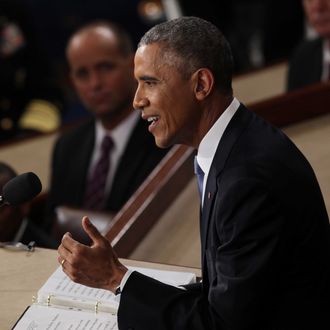
The Obama administration’s plan for the federal budget will contain a new line-item that is numerically trivial but philosophically important: $15 million for states to analyze the costs and benefits of their job-licensing requirements. Appropriating a tiny sum of money to study what sounds like a technical issue may sound like a minor and uncontroversial step. In fact, it reframes one of the most interesting new policy debates that has emerged during the Obama era.
State governments, with little public attention or debate, have spun a vast web of red tape that bars entry into working-class professions. Jobs like florists, manicurists, barbers, and on and on, impose unnecessarily burdensome restrictions on those who can practice the trade, closing off potential avenues for upward mobility. These restrictions have no policy rationale; they exist because incumbents in those fields have an interest in keeping out competition.
Licensing barriers have no natural intellectual constituency. But the issue sits in a strange and as-yet-undefined place in the political debate. Because these regulations reside at the state level, a national solution is hard to devise. Conservatives have seized upon the issue mostly as a retort to taunt Democrats on inequality. If Obama were truly interested in reducing inequality, writes Nick Gillespie, he would work to reduce occupational licensing. (“If Obama was really interested in looking to the future and shaking off the past — not to mention jumpstarting economic innovation and growth — he’d do well to think about growing the supply of goods and services rather than trying always to manage the demand side.”) Paul Ryan’s celebrated anti-poverty plan prominently mentions occupational licensing but lacks any policy response.
The problem is not that the right secretly loves occupational licensing. It’s that conservatism is geared toward localism and views national-level government as inherently more oppressive. In reality, the most oppressive forms of government reside at the state and local levels.
That the Obama administration proposes to allocate $15 million for states to study the issue hardly guarantees a solution. The regulations exist because they benefit powerful lobbies, which won’t go away just because somebody commissioned a study. But publicly highlighting the costs of occupational licensing creates the chance, at least, to bring some power to bear on the opposite side of the political ledger. Entrenched incumbents will still defend their quasi-guild status, but highlighting the cost borne by the public might give good government a fighting chance.






























